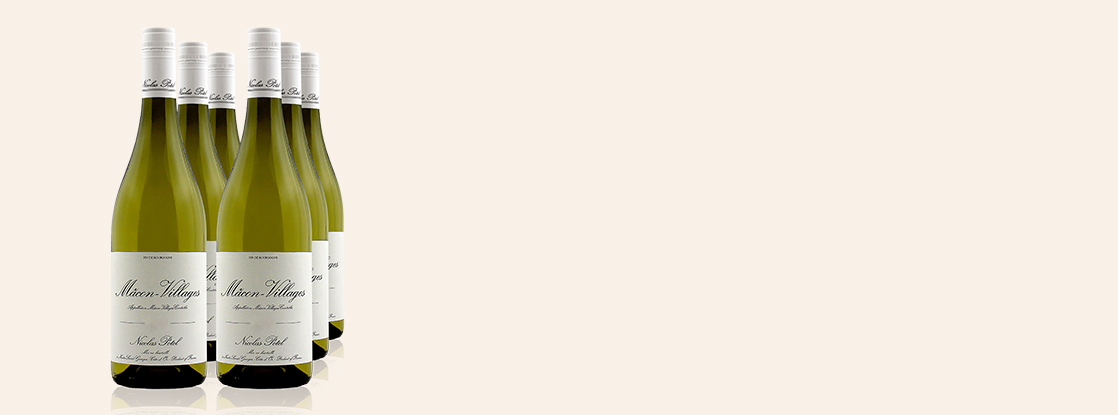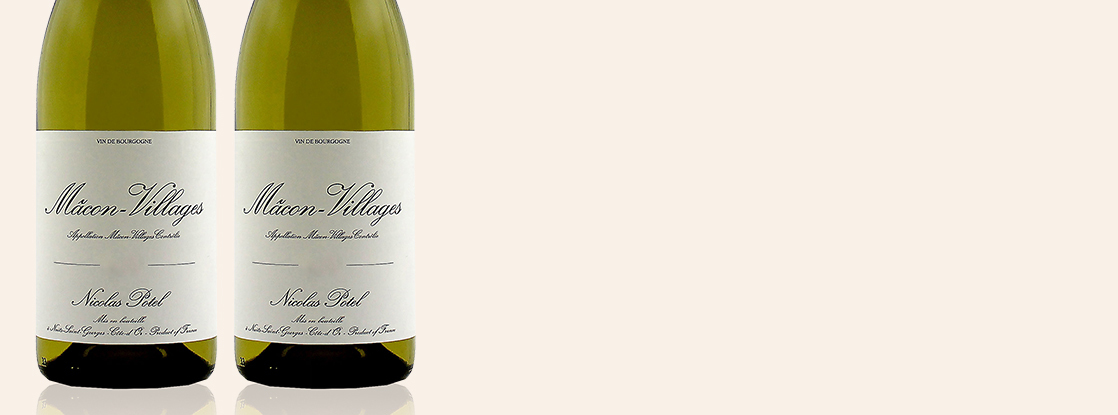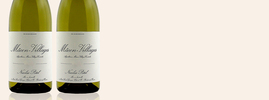

2014 Mâcon-Villages, Nicolas Potel
White • Burgundy • Mâcon-Villages AOC • France • 100% Chardonnay • 90/100 Wine & Spirits Magazine
This wine might become available again in limited quantities. Do you want to be informed when?
2014 Mâcon-Villages, Nicolas Potel, Burgundy, France, Mâcon-Villages
Along with Bordeaux and Champagne, Burgundy is one of the most well known vineyards in France. As well as climate and soil diversity, two exceptional varietals exist: Pinot Noir and Chardonnay, from which the greatest red and white Bourgogne wines are created.
Maison Nicolas Potel has built its international reputation by making wines from the most beautiful lands of the region.
Grape harvest is a crucial moment: fruits are selected in order to eliminate unwanted grapes, and also to evaluate precisely the quality of the harvest. This will help them to work afterwards.
During every wine making, they taste the cuvées twice or three times a day, so as to follow their aromatic evolution. After winding removal, they softly press with a vertical wine-press, and then they settle the liquid before filling the barrels.
In cellar, they have chosen to avoid the maximum of interference, that is to say if one leaves the must to settle enough in a way of opting for a maturing of between 12 to 16 months on the fine lees, without racking and a minimum of SO2, a protection for the carbonic gas and a late malolactic fermentation. All their wines are drawn off just before bottling and blended in the vats in such a way that it will have the same uniformity in the bottle. The old fashioned racking: the wines are drawn off by the "Broquereau", that is to say the opening is at the end of the barrel, with the aid of the funnel. That allows to push them without the aid of a pump and to finish off the racking with a "tastevin" in order to be very precise on the brillance of the wine. That is to say, well separated from the lees, and as important for the non-filtered.
They follow the bio-dynamic calendar and try to follow their wines in their style, either on root days in order to respect the best of their individuality.
From grape selection to bottling, they particularly care about the expression of terroirs, so as to deliver their aromatic characteristics in every bottle of wine. They usually take into account the quality of the soils, the work of their partner winegrowers, and also the health and exposure of vines.
They carry out meticulous researches and parcels follow-ups long before. First of all, they execute a visual work, thanks to their winegrowers' information. Then they act more technically, with winegrowing follow-up, in order to advise their partners about various decisions they will take concerning the vine parcels.
A quality wine is, above all, a natural wine. This is why they interfere as less as possible during wine making. Indeed, since each year is different, they think that adapting their wine making style for every vintage is important. As a result, they focus on taste and sensitive aspects more than analysis results or wine making forms.


